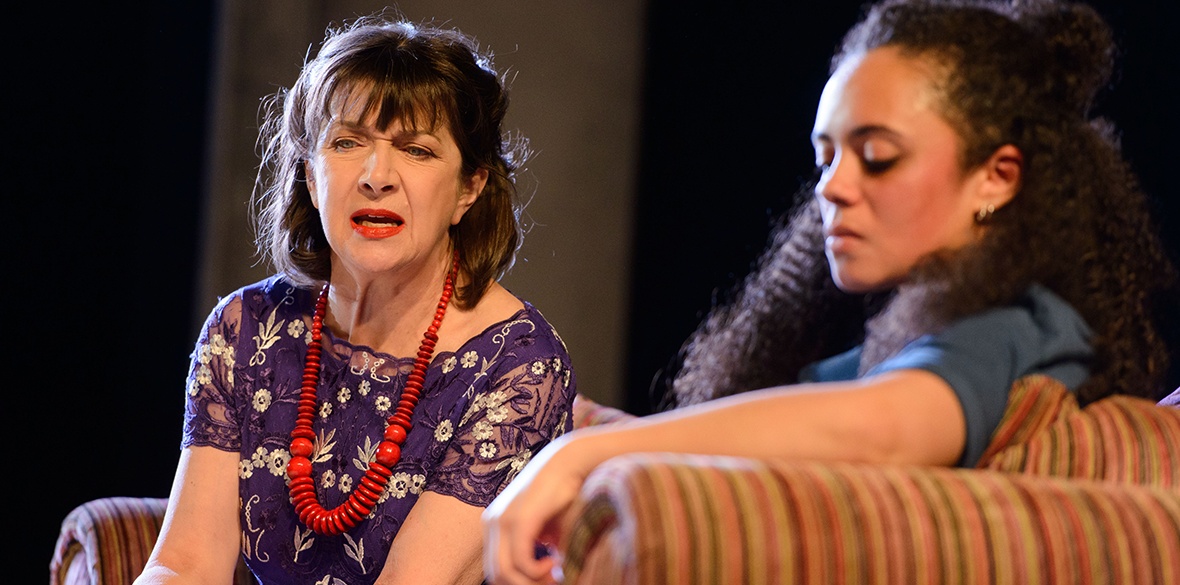This is the last article you can read this month
You can read more article this month
You can read more articles this month
Sorry your limit is up for this month
Reset on:
Please help support the Morning Star by subscribing here
The Scent of Roses
Royal Lyceum Theatre Edinburgh
IN EACH scene of Zinnie Harris’s new play The Scent of Roses, a pair of characters demand the chance to talk, then fail to talk, play power games, and never think of getting counselling or calling social work.
Nothing dramatic happens except to the scenery: Tom Piper’s design gives us a well-heeled flat in Edinburgh that slowly and surrealistically disintegrates.
Each relationship fails to connect and maroons itself in nihilistic despair: husband and wife; teenage rebel and teacher; alcoholic teacher and distant mother; lover and adulterous husband.
You can detect Harris’s fascination with Greek tragedy in each tableau.
Peter Forbes as Christopher, a middle-aged lawyer, is a useless Agamemnon in a post-Patriarchal culture, bereft of self-belief. Neve McIntosh is the self-righteous Clytemnestra who will be slain by cancer, her own biological Orestes. Their daughter Caitlin channels the hallucinatory madness of Cassandra in a vindictive psycho-sexual assault on her secondary school teacher.
They all say they “want to talk,” but they only use words to bring about the humiliation of the other, and to justify themselves in self-righteous isolation. It is a measure of the brilliance of both the writing and the performances that you find yourself drawn into these bitter and destructive games.
It’s Sartre set in 44 Scotland Street. The characters in this Edinburgh bourgeois House of Atreus are incapable of empathy and the experience is like a nightmare sitcom, the circles of dysfunctional family hell from which the middle class cannot escape.
But beyond the family, those they abuse are capable of self-redemption.
The teacher (Saskia Ashdown) is honest about her alcoholism, and seeks refuge with her frigid mother. And the mother, played by Maureen Beattie, situates herself outside the circle, like the Goddess Athena. Unlike the others, she has boundaries. They apply to her daughter as much as her lover.
And when this rigidly self-disciplined woman finds within herself the unexpected capacity to give her daughter a hug the play discovers the single gesture that oversteps the narcissism that is the tragedy of all the characters.
Unlike Aeschylus, Harris sees no need for murders in theatrical spectacle, and in their place she delivers an emotional narrative, a sequence of tangible moments within the inner lives of her characters. It is bold to make a play that is so rich and so devastating in which nothing happens except words.
It is not surprising that this stunning (if masochistic) achievement belongs squarely to Scotland’s leading female playwright and director.
Runs until March 19 2022. Box Office 0131 248 4848 / lyceum.org.uk











